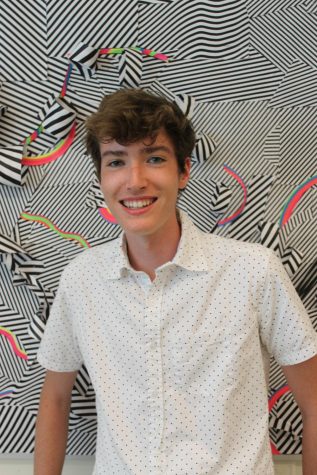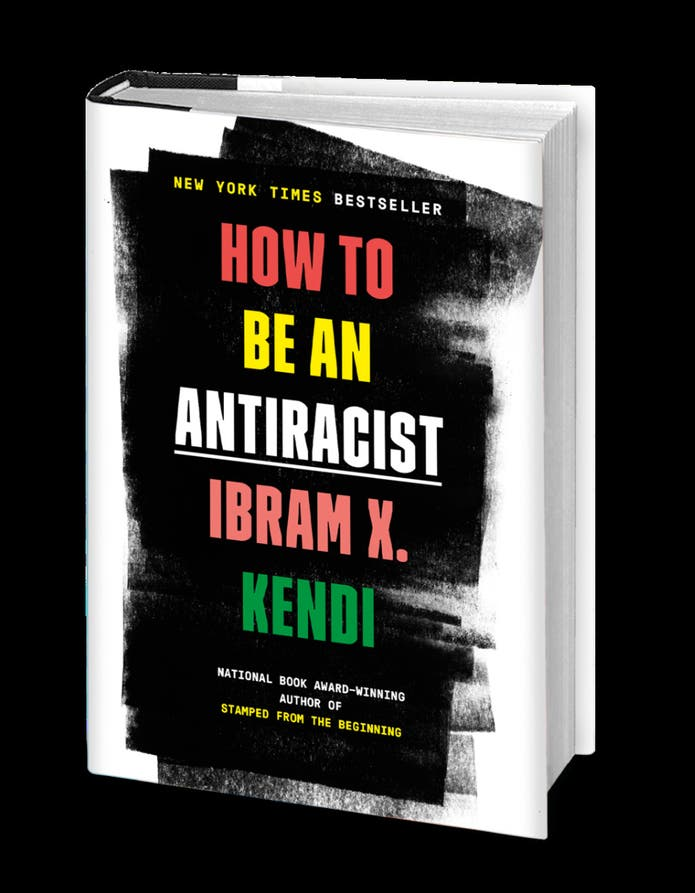Multicultural Literature is Trying to Diversify Chamblee’s Curriculum
“How to Be an Antiracist” by Ibram X. Kendi.
With school taking place face-to-face again as we move past the worst of the COVID-19 pandemic, there is a lot for Chamblee students to be excited about. One development that may have flown under the radar, however, is the relatively new introduction of multicultural literature as a course option for Chamblee’s seniors. Taught by Ms. Adrienne Keathley, the class offers diversity in more ways than one.
“I think that it’s important for seniors to have more choice than just British literature, AP lit, or not being in the building at all–doing dual enrollment,” said Keathley. “I also think that it’s imperative that there be courses offered that reflect the demographics of our county as a whole, certainly here at Chamblee High School, which is one of the most diverse in the county.”
For years, many students and teachers alike have found the British literature course to be, for lack of a better word, boring.
“Last year, my teacher was going over lit classes for senior year. He broke them down, and said the difference between British and multicultural lit was that Brit lit was just going to be a bunch of old white guys,” said Chamblee senior Isabella Perez (‘22). “Which honestly, I feel like we read most years.”
Keathley agreed with that assessment.
“I think Brit lit is, if done by the textbook, […] primarily antiquated poetry and antiquated ideologies as it relates to women, people of color, and other religions than Christianity,” she said. “Almost every allusion in those older works like Beowulf and Canterbury Tales, […] is biblical and it’s exclusionary to so much of our student population.”
Much of the curriculum of multicultural literature centers around the books “How to Be an Antiracist” by Ibram X. Kendi and “White Fragility” by Robin DiAngelo. Keathley hopes that the relevance of these works to the world we live in will make for a more engaging course for students. In fact, that was one of her main points as she fought for multicultural lit to be introduced in DeKalb over the past five years or so.
“I started softly, being like ‘Fulton County has this course, multicultural lit, that’s open to their seniors, why aren’t we taking a look at that?’” said Keathley. “And the feedback was always ‘Well we don’t have a county flex course if they fail.’ And I countered with ‘Don’t you think that the failure rate would be massively diminished if it were content they were more interested in?’”
However, it still took several years before the class was an option for Chamblee’s seniors.
“That’s how it started, and then I just honestly I got a little louder every year,” said Keathley. “I started putting things in writing, I started pushing for there to be a committee to write an actual curriculum.”
While the 2020-2021 school year was officially the first year that saw multicultural literature added to Chamblee’s course catalog, the virtual environment limited the course’s potential. Keathley hopes that this year, the class can meet her vision.
“Last year we were only seeing [students] twice a week,” she said. “So it was literally like half of the reading and types of literature […] that I wanted to do. I was only, for example, able to include select chapters from those two texts by DiAngelo and Kendi. I would like to read the whole books and frame the entire curriculum around that. […] I really am looking forward to being able to teach, and include the different chapters from “White Fragility” and “How to Be an Antiracist” as frameworks for contemporary literature.”
Most of all, however, Keathley hopes that the class will have an impact beyond academics.
“I hope that it really starts to put into effect many of the tenets of the Anti-Defamation League, and open up dialogue between peers in a manner that will transfer into the adult world that my seniors are about to step into–to be active socially, politically, and get involved,” she said. “Once you’ve personalized what most people are just reading about, when you’re looking in the face of somebody you know, that you care about and you hear their experiences, it puts a face on it and it’s no longer an ‘ism.’ It becomes something important to everybody. Humanitarianism is really the end goal for me.”
Denisse Rocha (‘22), a senior and one of Keathley’s students, is looking for a similar impact.
“Basically, [I hope it creates] more awareness,” she said. “I want [students] to be more open minded and to just respect each other more and to not be as ignorant–and if we are so ignorant, then to learn from that.”
Just a few weeks into the school year, nobody knows for sure if that will be the course’s impact–but the potential is there.
“Multiculturalism opens up the ability for us to learn from one another in a broader sense than just that which is literary,” said Keathley. “And that’s important.”
Your donation will support the student journalists of Chamblee High School Blue & Gold. Your contribution will allow us to print editions of our work and cover our annual website hosting costs. Currently, we are working to fund a Halloween satire edition.

Adam Pohl is a senior and this is his second year on the staff. One movie that describes his life is "I Am Legend." In five years, he sees himself graduating college and entering the workforce as one insignificant cog in the unrelenting machine of capitalism.






